Directions
As my lazy “July reading,” I’m going through the pages on Davies’ “Vanished Kingdoms.” At the time of presidential conventions of both parties, it is imperative to remember what time does to the hubris of the mighty. Davies nicely points to the transient nature of this common to humankind condition, especially when we’re on the tipping point of greatness: “It [hubris] is older than the Greeks who invented the world, and who, in the period of their greatness, discovered the statues of the Egyptian pharaohs already half-buried in the desert sands.”
As Shelley reminded us:
My name is Zymandias, kind of kings;
Look on my works, ye Mighty, and despair! ‘
Nothing beside remains. Round the decay
Of that colossal wreck, boundless and bare
The lorie and level sands stretch far away.
And Cicero put a nail to the coffin of our aspirations of grandeur and pomp that inevitably leads to nemesis: “There is no work of human hands which time does not wear away and reduce to dust.” Anyone with brains always knew the transient nature of our existence. Our philosophy was born to refute Heraclitus’ panta rhei, “everything flows.” Since the perpetual it-scares-the-hell-out-of-us, we stubbornly cling to old Plato’s answers to Heraclitus even in our post-modern age. Certainty, permanence, faith in sturdiness of our foundations for long has been humankind’s drug of choice to hide from the finite nature of our lives, myths, multitudes of heroes, nations, states, empires. Paradoxically, to hide from the inescapable transience that the master by the name of Time brings to all and everything, we heavily invest out intelligence in ignorance to achieve the reveries of illusion. Yet, as James Joyce, put it, “time’s ruins build eternity’s mansions.” By embracing the ephemeral nature of our experience on this side of eternity, we’re able to truly distinguish between what is truly important and the baggage that can be easily discarded. Then, we’re even able to celebrate this fleeting condition and bow in reverence to Time. Instead of weeping at our foolishness like Heraclitus, we laugh at it as Democritus.
Understandably, if all roads always lead to Rome, all my “philosophizing” leads to charcuterie. This is my way to laugh at the face of Time. Fully acknowledging my own transience, I bend the Master Time to my own will since the only way to gain control is to accept the total absence of such. Hence, let the time do it thing and serve us…
That being said, this is a coppa\capocollo , dry-cured six months. Just a commodity pork from our local Sprouts. Nothing fancy. Well, Sprouts claims that their pork is “all-natural, farm-fresh” , “100% vegetarian fed”, and it is much better than a typical supermarket sells; yet, it’s far from what one gets from a reliable farmer.
Beginning: 2.5% sea salt; 0.25% cure #2; 0.7% dried thai chili; 0.8% BP; 0.1% onion powder; same amount of dried marjoram, splash of bourbon, and a touch of blackstrap molasses. Then – vacuum, fridge for 12 days. After two days of rest, dusted with combination of dried thai chili and BP and incases. Weight at this point: first coppa – 1294 gr.; second – 982gr. Weight loss at the end – 47%. As you can see, I’ve sliced the coppa in an unorthodox way, almost in parallel to the muscle. Characteristics of the end product: very soft texture; musky, complex aroma; out of spices, thai paper can be identified, the rest dissolved into monotone complexity.
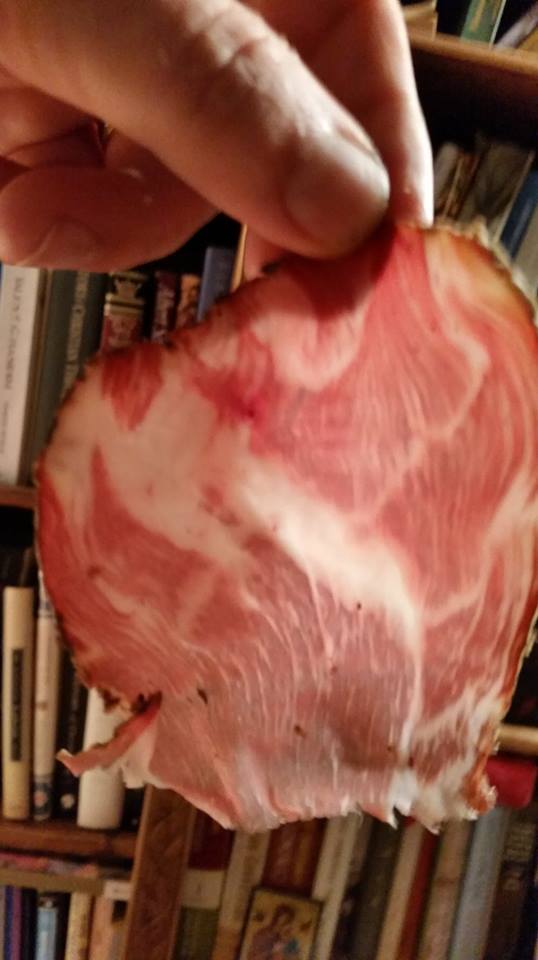
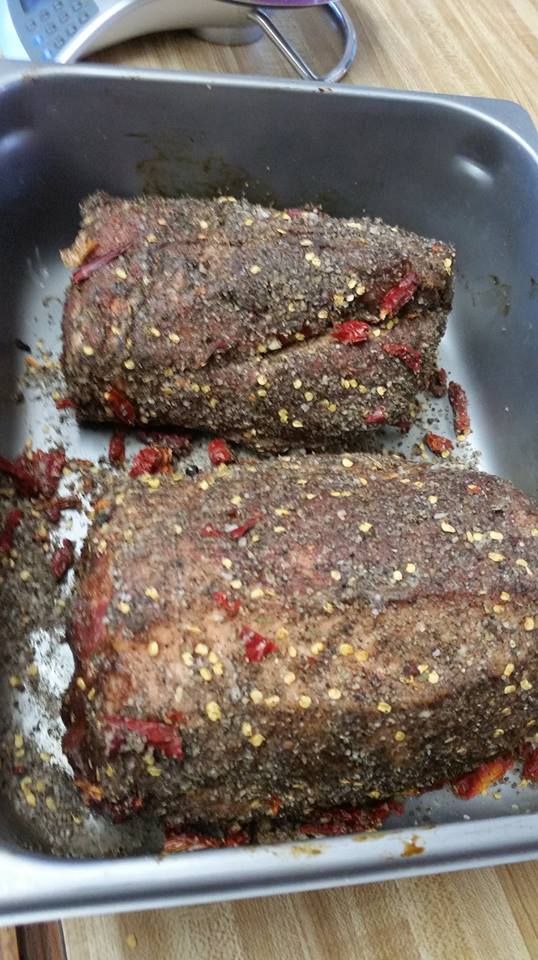
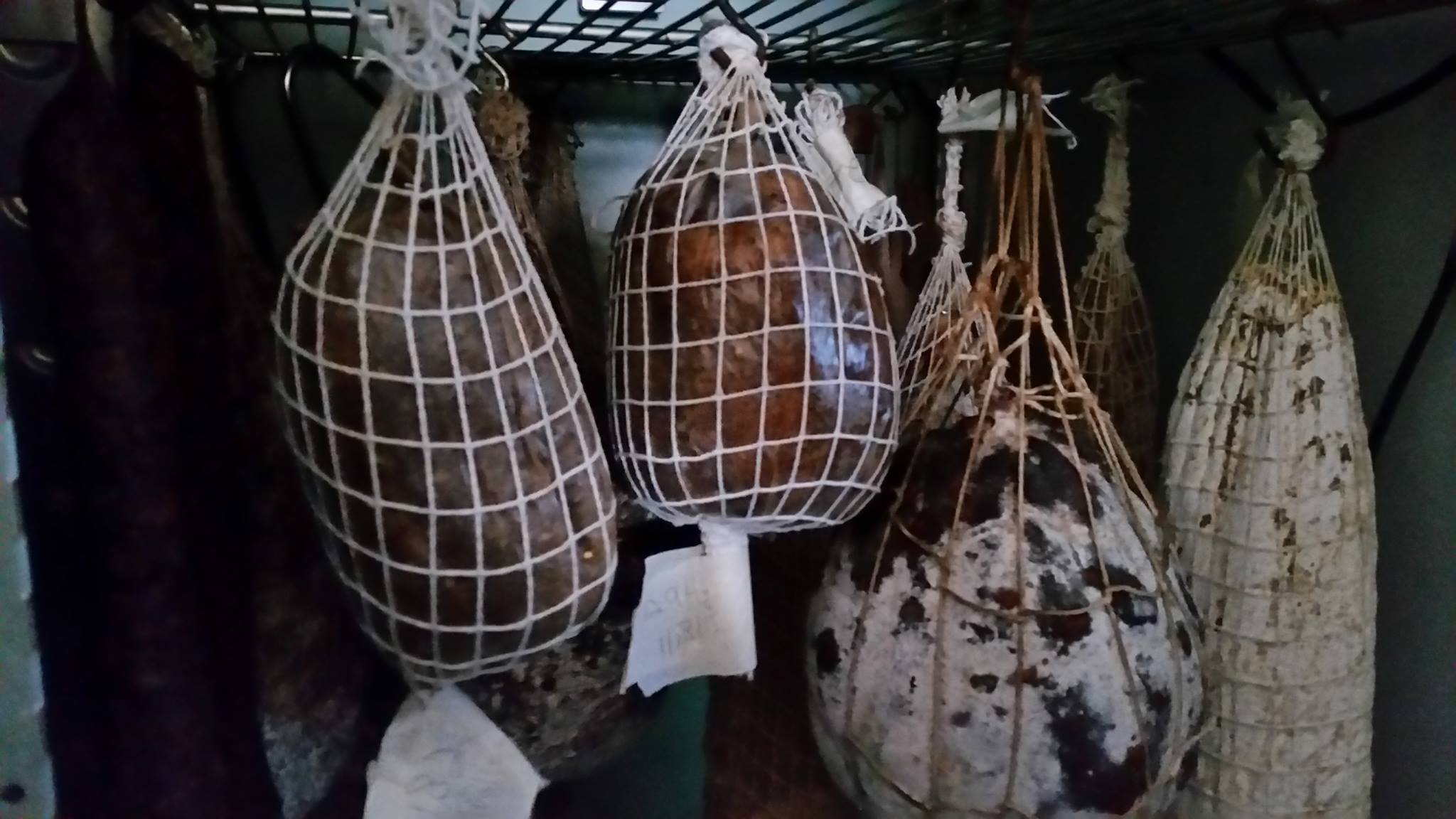
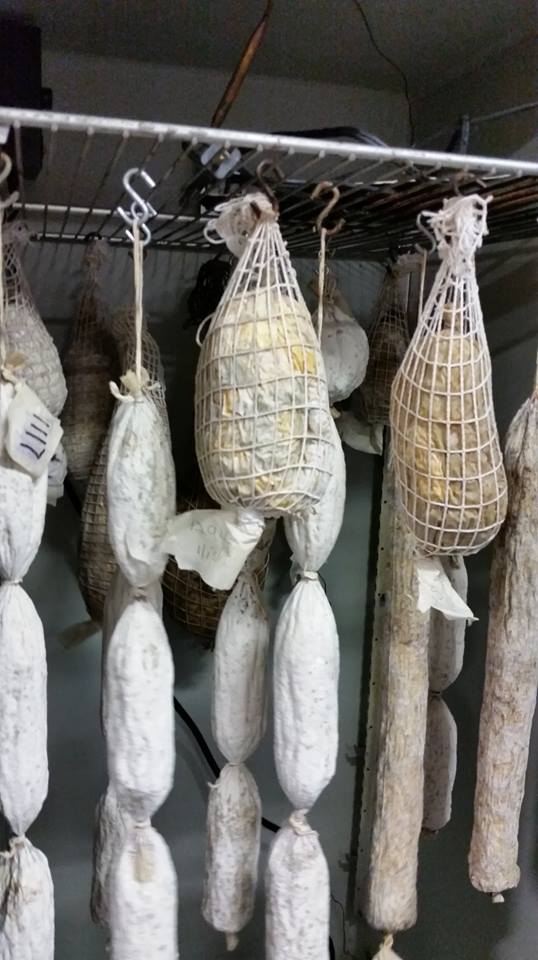
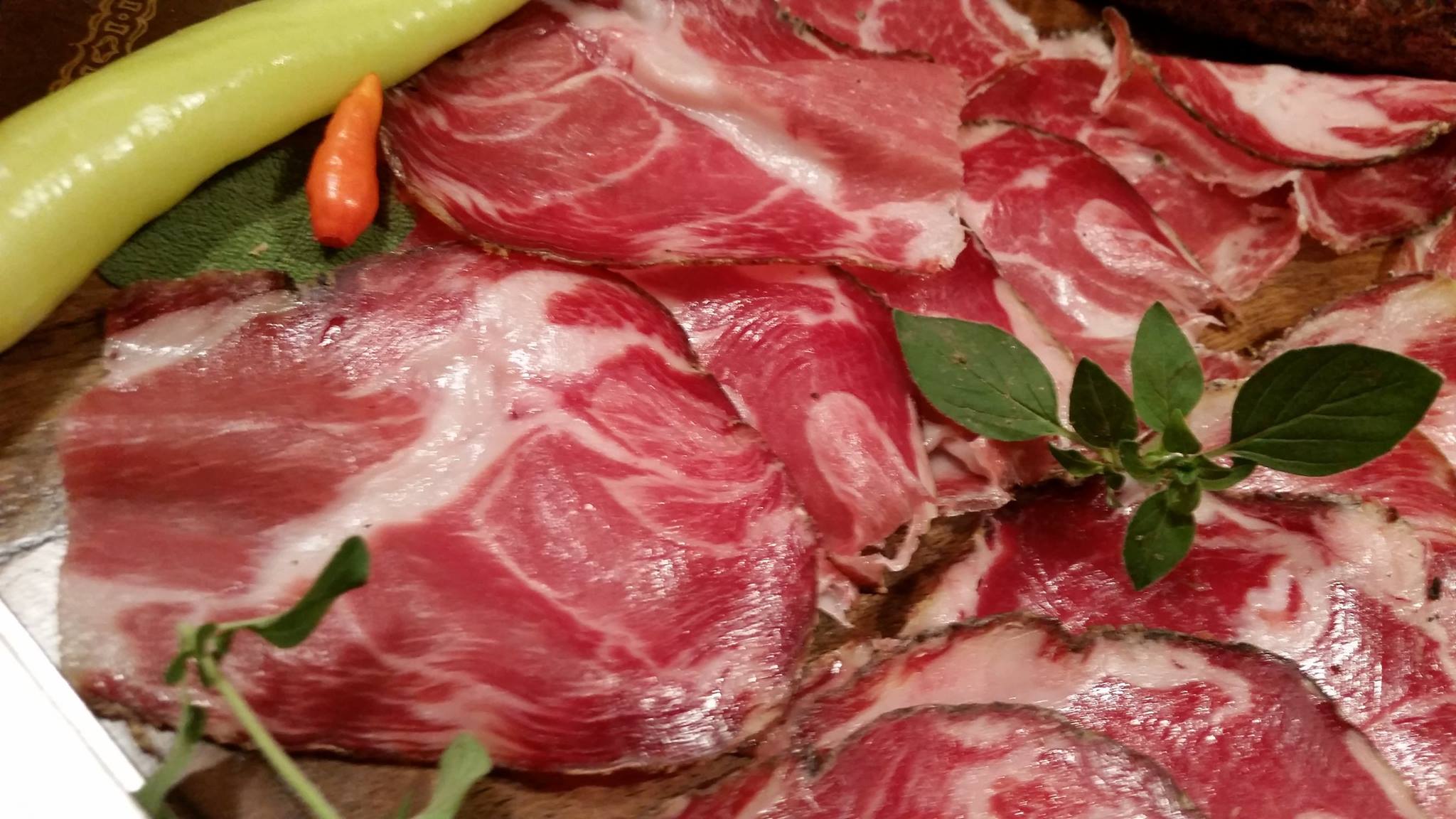


 Русский
Русский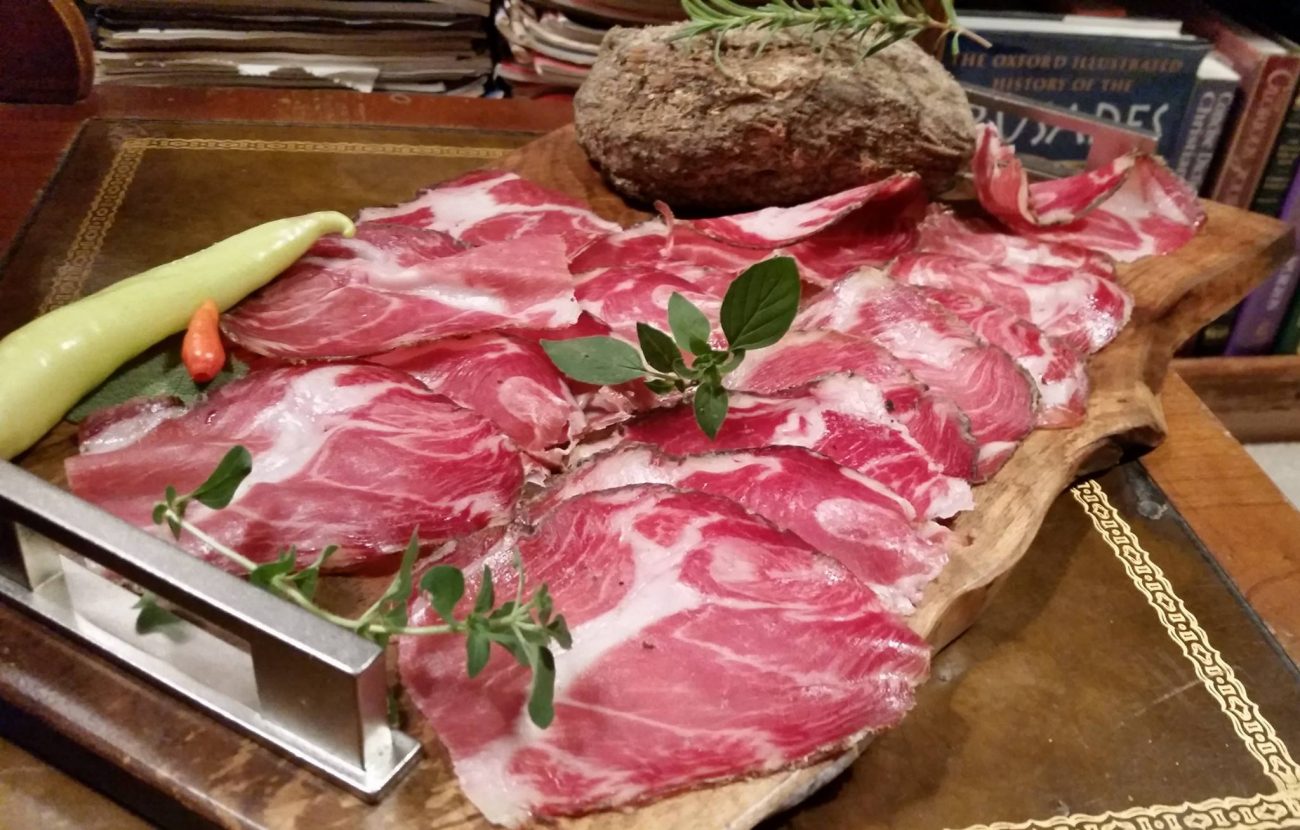


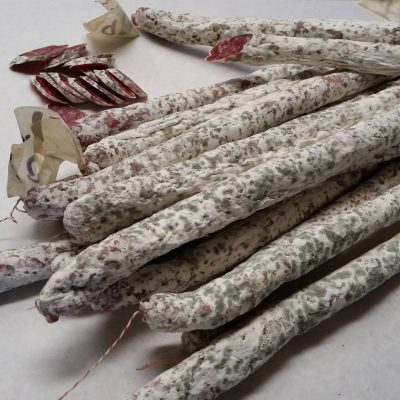
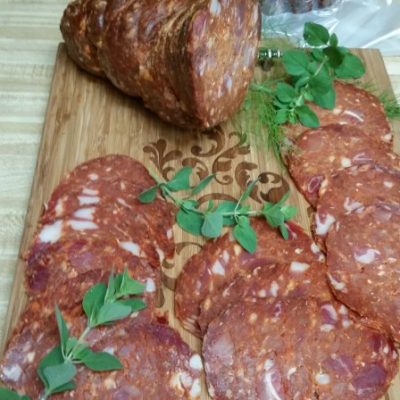
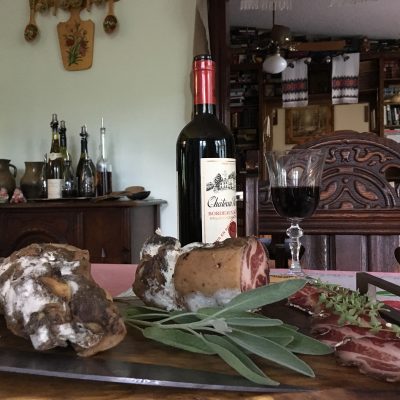
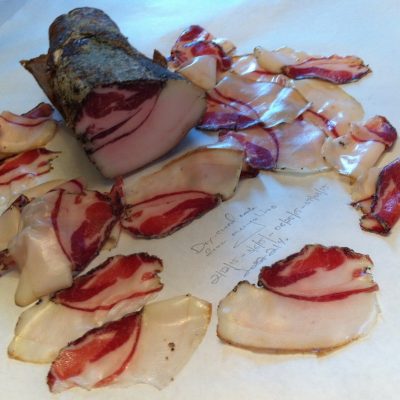
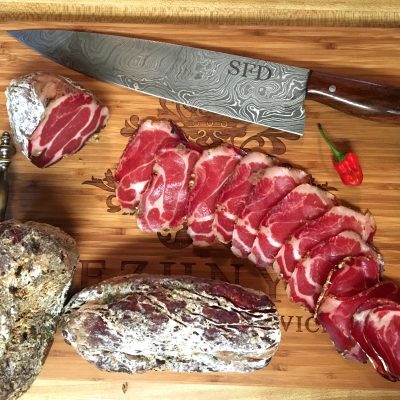
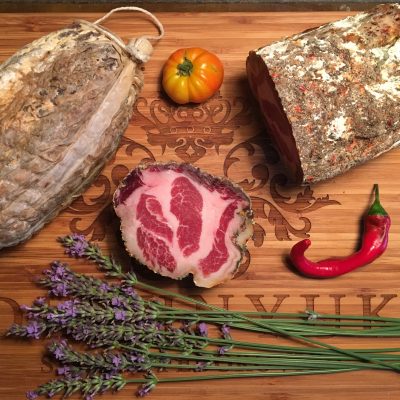
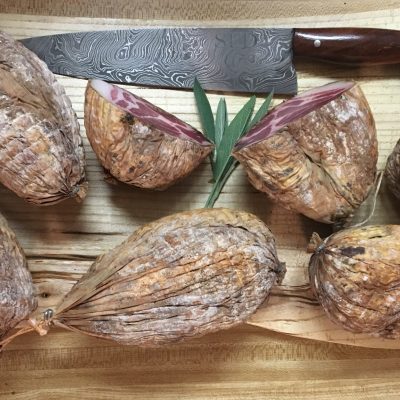
One comment
Or use one of these social networks